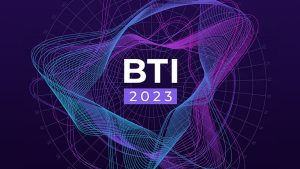Innovation
with Impact
Scroll
High-velocity change has become our default setting.
The need to address the climate crisis and growing social inequality means that businesses must consider not just financial performance but also societal and ecological impact.
But transformation on this scale is not easy.
It requires the collective brainpower of the world’s best and brightest problem-solvers.
This is where Expleo comes in
Whether we’re collaborating on a new kind of brain-controlled “exoskeleton” that allows tetraplegic people to walk again, using bamboo to reduce the environmental footprint of aircraft, or helping deploy a constellation of 900 satellites to deliver affordable internet access around the world, we are driven by a singular and powerful purpose every day:
To transform technological expertise into concrete solutions for a greener, safer and better tomorrow.
That’s the Expleo way.
Play Video
Together, we can reimagine...
THE WAY WE MOVE
Our lives are not static. Society and the economy are driven by mobility, keeping people and goods in constant circulation. But 95 per cent of the transport we rely on are prime contributors to air pollution and climate change. To protect the environment and guarantee our health and quality of life, we must rethink mobility. Through autonomous, sustainable electric vehicles or we can create safer, cleaner and more efficient transportation for our communities.
HOW OUR CITIES OPERATE
Today, 95 per cent of the world’s population lives on just 1 per cent of its landmass. Concentration of people in towns and cities has created inefficiencies and inequalities in distribution of resources and services. With urban population growth showing no sign of slowing down, we must urgently address the way that our cities work, implementing intelligent systems that create a fairer environment with more abundant and sustainable resources for all.
A TRANSITION TOWARDS A MORE CIRCULAR ECONOMY
The world is suffering the consequences a “take-make-dispose” approach to production and consumption. Of all plastic produced worldwide, half is used once and thrown away. Today, 300 million tonnes of plastic waste is produced each year. Having a circular economy, which promotes the elimination of waste and the responsible use/reuse of natural resources, could generate $4.5 trillion of additional economic output by 2030.
HOW WE DELIVER HEALTHCARE
Growing and ageing populations have put healthcare systems under greater pressure than ever before. The pandemic has only increased the need of new models of healthcare provision. In parallel, rapid technological advances are creating breakthroughs in procedures and treatment, offering hope to millions around the world whose conditions were previously considered untreatable or incurable. These technologies will form the basis of new healthcare systems which will improve wellness outcomes for people the world over.
THE WAY WE POWER OUR PLANET
Harnessing new fuel sources for energy has been the great driver of economic expansion and social progress throughout human history. However, the legacy systems on which we currently rely on damage the environment, doing more harm than good. They must be replaced before it is too late. We must explore new ways of generating clean, safe energy and work to implement these at scale, with minimal disruption to daily lives. In doing so, we will transition towards a more sustainable energy ecosystem.
THE POSSIBILITIES BEYOND OUR ATMOSPHERE
Human existence has been defined by a pursuit of understanding the world around us. But the challenges we face today are too complex to continue just looking around us. We need to look beyond our atmosphere. There’s still much to learn about space but we know it offers untapped potential to broaden human knowledge, and look after our planet. Through a better understanding of the universe, we can open new frontiers on Earth and beyond.



